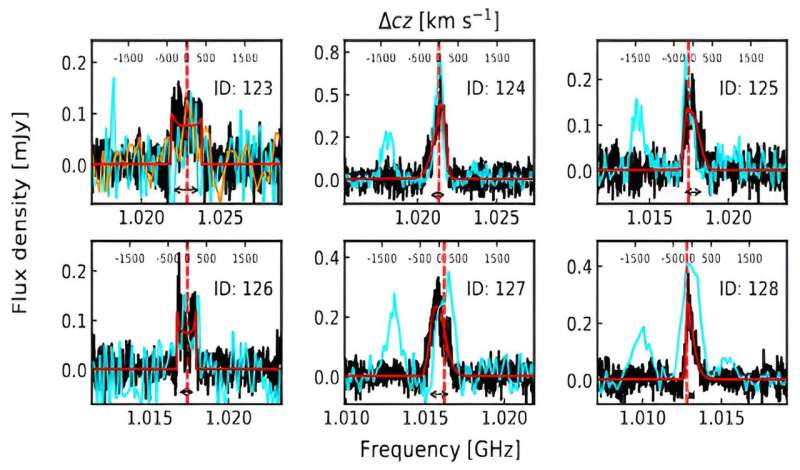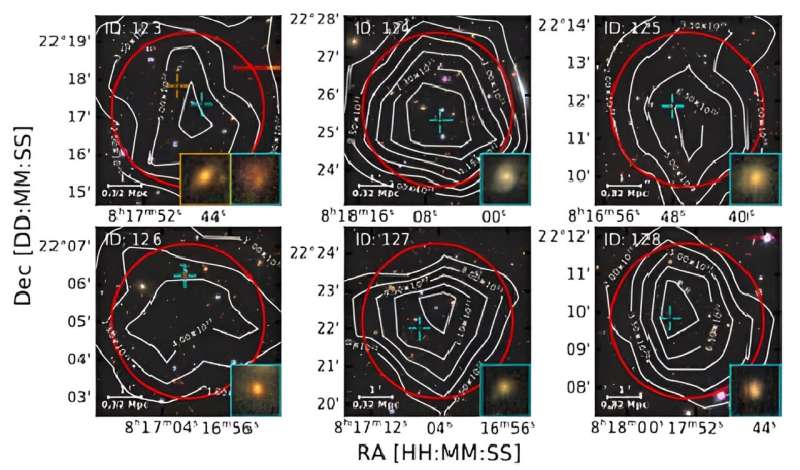
Astronomers, using the Five-hundred-meter Aperture Spherical radio Telescope (FAST) in China’s Guizhou Province, have found an abundance of gas-rich galaxies in the distant universe.
Dr. Xi Hongwei from the National Astronomical Observatories of the Chinese Academy of Sciences (NAOC), and the collaborators, revealed the properties of six new high-redshift galaxies. The study was published online in The Astrophysical Journal Letters on May 9.
These remarkable galaxies, whose radio wave emissions have taken almost the age of the solar system to reach us, contain similar or more atomic hydrogen gas than the tens of thousands of galaxies previously surveyed in the local universe with other radio telescopes.
The researchers concluded that galaxies four billion years ago have much more star-forming gas than current day galaxies, and that distant galaxies have much greater gas reservoirs than previously believed.
“These discoveries are part of the ongoing FAST Ultra Deep Survey, showing the tremendous sensitivity of the world’s largest radio telescope,” said Prof. Peng Bo from NAOC, one of the corresponding authors. “The new FAST survey has so far discovered over 100 new galaxies at distances up to five billion light years, with the final number expected to reach over 1,000.”

Finding the optical counterparts to the new radio discoveries has turned into a detective story, because galaxies are very faint at such large distances. And because of the wavelength difference, the localization accuracy of FAST is not as good as that of optical telescopes.
However, using the largest optical telescopes in US and Russia, the counterparts were eventually identified by experts from the collaborative team. The counterparts were found to contain two to three times more stars than the Milky Way, yet contain about 10 times the mass of hydrogen gas.
“This collaborative work between Chinese and Australian radio astronomers demonstrates the tremendous potential of the new generation of radio telescopes that, later this decade, will also include the international Square Kilometer Array Observatory (SKAO),” said Prof. Lister Staveley-Smith from the University of Western Australia node of the International Center for Radio Astronomy research, the other corresponding author.
More information:
Hongwei Xi et al, The Most Distant H i Galaxies Discovered by the 500 m Dish FAST, The Astrophysical Journal Letters (2024). DOI: 10.3847/2041-8213/ad4357
Citation:
An abundance of distant gas-rich galaxies found by FAST (2024, May 10)
retrieved 10 May 2024
from https://phys.org/news/2024-05-abundance-distant-gas-rich-galaxies.html
This document is subject to copyright. Apart from any fair dealing for the purpose of private study or research, no
part may be reproduced without the written permission. The content is provided for information purposes only.







